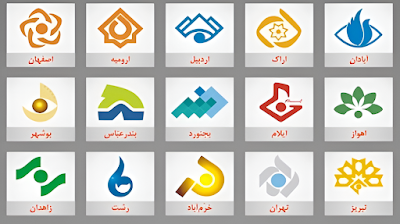Taher Shir Mohammadi | February 21, 2015 - Deutsche Welle Persian
Local programs of the Islamic Republic of Iran Broadcasting (IRIB) in ethnic regions have sparked protests and grievances among the people. They claim that IRIB is destroying their mother tongues. The governor of Ardabil has urged this national broadcaster to use local languages.
Saturday, February 21, marked International Mother Language Day, designated by UNESCO. This year marked the 15th anniversary of the occasion. UNESCO, as a specialized agency of the United Nations, has called on governments worldwide to take responsibility for the languages spoken within their borders. As a UNESCO member, Iran is obligated to implement its programs.
Ethnic affairs experts, in conversations with Deutsche Welle, confirm that more than 21 months after the president's promises regarding mother tongue education, people in Iran’s ethnic regions are still waiting for "President Rouhani's key to unlock the doors to mother tongue education," a promise that remains unfulfilled to this day.
On the eve of this year’s International Mother Language Day, IRIB’s local programs in ethnic regions faced criticism. Videos circulating on social media show presenters on local and regional programs speaking in a hybrid form, replacing most of the vocabulary in minority languages with Persian, often only slightly modifying verbs.
Governor of Ardabil: Use the Mother Tongue and Turkish!
Criticism of IRIB’s local programs in some regions has reached the highest provincial officials. The Fars News Agency quoted Majid Khodabakhsh, the governor of Ardabil, stating that during a provincial education council meeting, he explicitly asked the participants, especially those involved in IRIB's “Special Dialogue” program, to speak in Azerbaijani Turkish.
The governor lamented:
“It’s a flaw that 99% of the words used in regional news and event programs on the provincial channel are Persian, merely with some verbs modified. Instead, everyone should strive to use the mother tongue and Azerbaijani Turkish more.”
During a meeting with tribal elders in Ardabil, Khodabakhsh also expressed satisfaction that their suggestions were made in Turkish, emphasizing:
“You nomads have preserved our mother tongue.”
IRIB and Mother Tongues
Heydar Bayat, an Azerbaijani cleric residing in Qom who publishes poems in Azerbaijani Turkish on the "Alma Yolu" website and is familiar with minority issues in Iran, stated that IRIB plays a destructive role in relation to the mother tongues of the country's minorities.
He added:
“The local staff working at this broadcaster are not trained. Moreover, languages naturally evolve and reconstruct themselves. However, non-Persian languages in Iran have not been able to do so because only Persian is prioritized, and no systematic work has been done on minority languages such as Azerbaijani Turkish, Kurdish, Balochi, Turkmen, and others.”
Comparing the current situation with the past, Bayat said:
“In the past, society reconstructed and produced its own language. Now, this process has been taken away from society and handed to institutions. Unfortunately, no institution supports non-Persian languages in Iran. As a result, these languages face a kind of decline. In Azerbaijan and other regions, 50 years ago, people created local songs, folklore, and proverbs. Today, this production has ceased, and the responsibility has shifted to IRIB and the Persian Language Academy.”
Bayat expressed concern that nothing significant has been done about mother tongues in Iran for years and that no serious will exists to resolve this issue, as it remains mostly a campaign slogan. He also emphasized the responsibility of Persian-speaking civil society, journalists, and citizens to address this matter and help solve it promptly.
The Role of IRIB in Language Suppression
Amin Goli, a researcher and author of A Historical and Social Review of the Turkmen, who previously collaborated with the IRIB in Golestan province, stated that the issue goes beyond "Persianization." He highlighted the limited airtime for minority language programs on IRIB, saying:
“Local IRIB stations provide programs in non-standard languages for their local audiences, undermining the roots of these languages.”
Goli criticized the IRIB’s use of terms such as "local, native, or ethnic languages" instead of "mother tongues," arguing that this diminishes their importance and reduces them to mere dialects. He also noted that local programs lack a connection to the culture and language of minorities, instead serving primarily as propaganda.
Bayat also stressed that terms like "subculture, dialect, or local language" are derogatory, an assault on human dignity, and treat these languages as adversaries.
Criticism of IRIB’s Practices
In previous years, IRIB's handling of mother tongues has also faced scrutiny. In an interview with Mehr News Agency, Akbar Afshar, an expert in Persian language and literature, noted that the Turkmen language receives only 300 seconds (five minutes) of airtime daily on Golestan’s IRIB channel.
Afshar told Mehr News Agency:
“In recent years, IRIB programs have inadvertently or indirectly contributed to the destruction of local languages, sometimes even mocking these dialects in certain programs.”
The link to the original article in Farsi on Deutsche Welle Persian:

